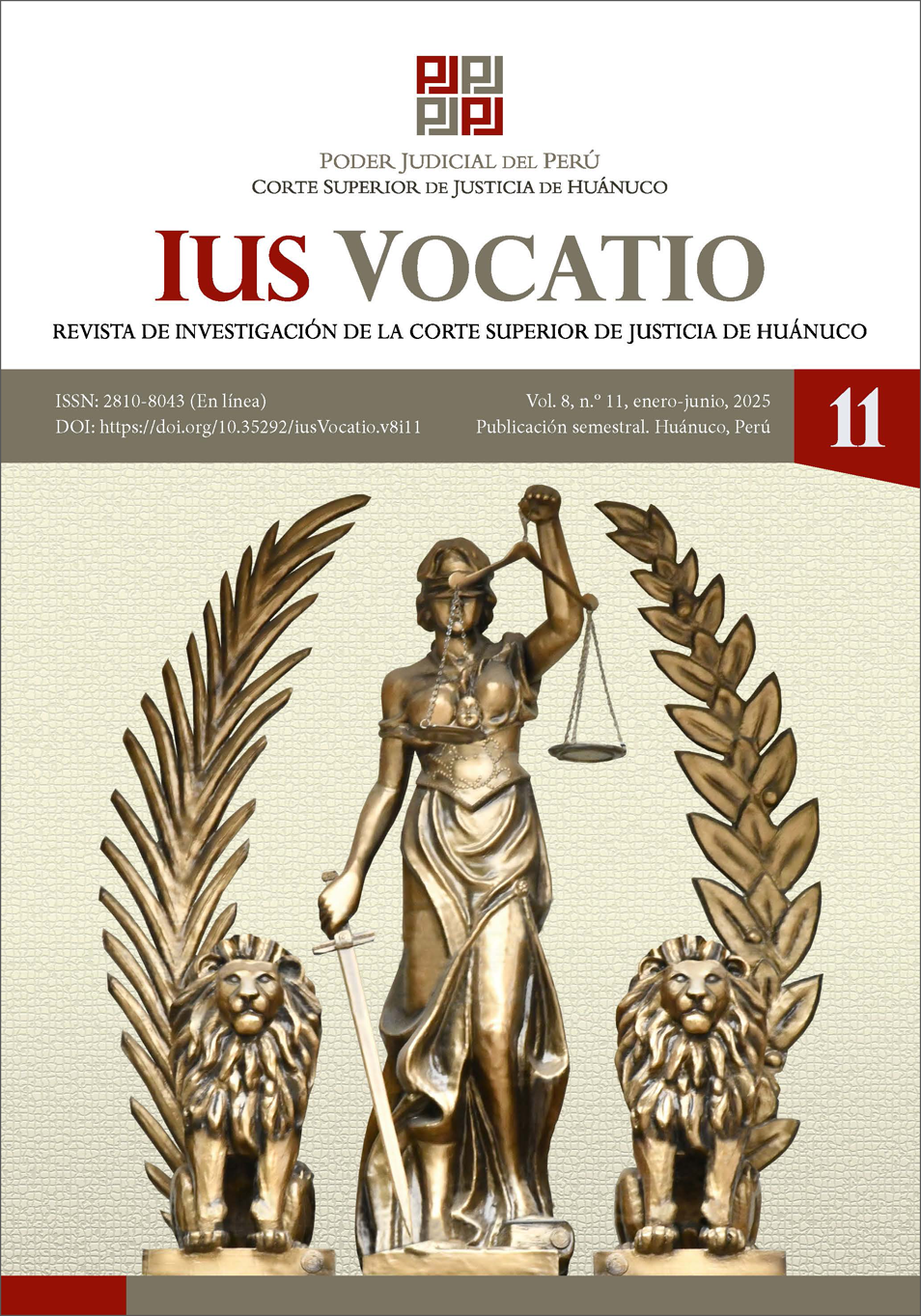O Poder Judiciário e o Tribunal Constitucional: tensões em torno da coisa julgada e do princípio da independência
Resumo
O presente artigo tem como objetivo esclarecer as tensões que estão surgindo atualmente entre dois pilares fundamentais do Estado, nomeadamente o Poder Judiciário (doravante PJ) e o Tribunal Constitucional (doravante TC). Embora este último desempenhe um papel muito importante, sua intervenção em aspectos jurisdicionais pode gerar incerteza e enfraquecer a segurança jurídica. Nesse sentido, a superestimativa de atribuições por parte do TC poderia ameaçar a independência de que goza o PJ, o que se observa quando o TC revisa sentenças judiciais que já adquiriram o caráter de coisa julgada, o que é preocupante, pois estaria violando o princípio da imutabilidade das decisões judiciais.
Por outro lado, analisa-se se é conveniente que as ações de mandado de segurança sejam revistos pelo Tribunal Constitucional após já terem sido rejeitados em duas ocasiões pelo Poder Judiciário ou, no caso do Habeas Corpus, que são apresentados mesmo contra sentenças da Suprema Corte; para tal fim, baseamo-nos na realidade jurídica chilena, onde as ações de mandado de segurança e habeas corpus são de competência exclusiva do PJ, o que permitiu descongestionar a carga do Tribunal Constitucional e otimizar sua função de interpretação e controle constitucional.
A justificativa e a importância da presente investigação residem na instabilidade jurídica que se vive em consequência das tensões entre as duas instituições estudadas. Nessa linha de pensamento, o artigo em questão analisa doutrinária e normativamente as funções e competências de ambas as instituições, a fim de delimitar a origem do conflito.
Finalmente, conclui-se que, embora a Constituição confira atribuições ao TC, este não deve expandir sua interpretação além do que a norma suprema lhe confere, pois isso poderia interferir nas funções de outras instituições, gerando conflitos que afetariam a estabilidade do país.
Downloads
Metrics
Métricas alternativas
Referências
Abad Yupanqui, S. (1984). La acción de amparo contra sentencias: ¿Una excepción constitucional al principio de Cosa Juzgada? Primera parte. Themis (2), 28.
Arrarte, A. M. (2001). Apuntes sobre los alcances de la autoridad de cosa juzgada en el proceso civil peruano. Proceso & Justicia, (1), 8.
Biaggini, G. (2003). La idea de Constitución: ¿Nueva orientación en la época de la globalización? Anuario Iberoamericano de Justicia Constitucional (7), 8. https://recyt.fecyt.es/index.php/AIJC/article/view/50667/30886
Campanelli, G. (2005). Incontri e Scontri tra Corte suprema e Corte costituzionale in Italia e in Spagna. G. Giapichelli editore.
Carpizo, J. (2009). El Tribunal Constitucional y sus límites. Editorial Jurídica Grijley.
Castillo Córdova, L. (2008). El Tribunal Constitucional y su dinámica jurisprudencial, Palestra.
Déclaration des droits de l´homme et du citoyen 1789. Textes Constitutionnels Larousse. https://ia800102.us.archive.org/28/items/DeclarationFranFran/LaDclarationDesDroitsDeLhommeEtDuCitoyen1789.pdf
Galligan, D. y Versteeg, M. (2013). «Social and political foundations of Constitutions». En Galligan, D. (ed.), Social and political foundations of Constitutions (pp. 3-48). Cambridge University Press.
García Belaúnde, D. (1988). «El funcionamiento del Tribunal de Garantías Constitucionales». En Enfoques peruanos temas latinoamericanos: El Tribunal de Garantías Constitucionales en debate (pp. 113 - 115) (2.ª ed.) Fundación Friedrich Naumann.
García Belaúnde, D. (2007). «Presentación». En García Belaunde, D. (coord.) ¿Guerra de las Cortes? A propósito del proceso competencial entre el Poder Ejecutivo y el Poder Judicial (p. 8). Palestra del Tribunal Constitucional 4. Cuadernos de Análisis y Crítica a la Jurisprudencia Constitucional. Editorial Palestra.
Hans K. (2005). Teoría general del Estado (2 ed.). Ediciones Coyoacán. Katz, A. (1987). Staatsrecht. C. F. Müller.
Landoni Sosa, A. (2003). La cosa juzgada: valor absoluto o relativo. Derecho PUCP (56), 297.
Monroy Gálvez, J. (1996). Introducción al proceso civil. (Tomo I). Estudio Belaúnde & Monroy. https://content.lpderecho.pe/wp-content/uploads/2021/04/MONROY-Juan.-Introducci%C3%B3n-al-proceso-civil.pdf
Montesquieu, C. de. (1906). El espíritu de las leyes. Librería General de Victoriano Suárez.
Quiroga León, A. (1999). «Las garantías constitucionales de la administración de justicia». En La Constitución diez años después. (pp. 323-324). Constitución y Sociedad y Fundación Friedrich Naumann.
Rubio, M. (1999). Estudios de la Constitución Política de 1993. (Tomo 5). Pontificia Universidad Católica del Perú.
Serra, R. (1999). La revisión de la jurisprudencia del Tribunal Supremo a través del recurso de amparo. Tecnos.
Sentencia n.° 0024-2003-AI/TC (2005). Tribunal Constitucional Peruano (10 de octubre del 2005).
Copyright (c) 2025 Jaime Gerónimo De la Cruz

This work is licensed under a Creative Commons Attribution 4.0 International License.
La revista permite a los autores conservar sus derechos de autor de los artículos sometidos sin ningún tipo de restricciones.
Los autores conceden a la editorial derechos de publicación no exclusivos para la publicación de los manuscritos aprobados.
La editorial solo reserva derechos de primera publicación, pero esto no implica que los autores pierdan sus derechos de autor sin restricciones.














